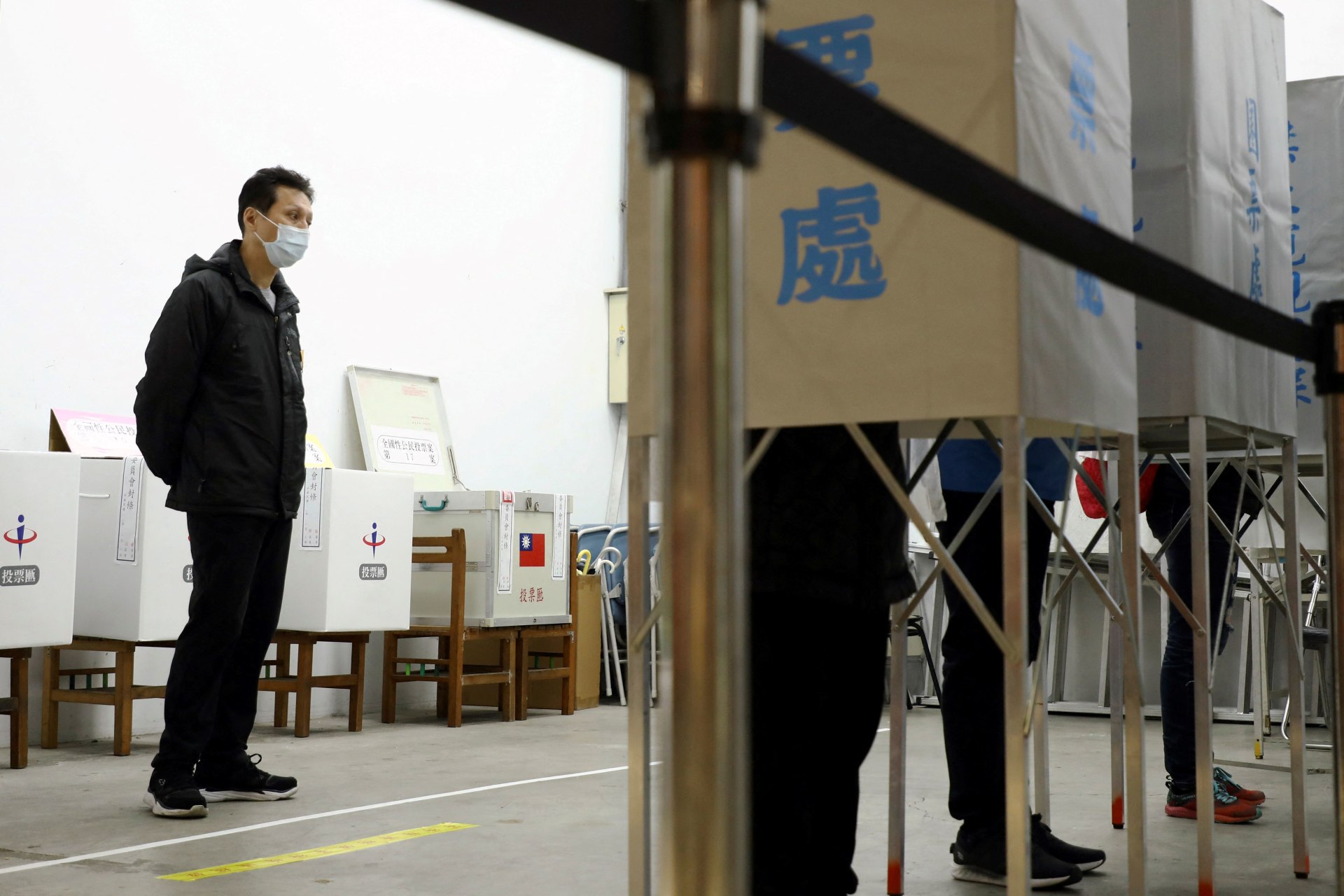The President’s Inbox Recap: Taiwan’s Presidential Election
Taiwan’s presidential election may increase U.S.-China tensions.

The latest episode of The President’s Inbox is live! This week, Jim sat down with David Sacks, a fellow for Asia studies at the Council. They discussed the potential geopolitical consequences of Taiwan’s election this Saturday, January 13.
Here are four highlights from the conversation:
1.) The election results could further strain cross-strait relations. Taiwanese President Tsai Ing-wen and her Democratic Progressive Party (DPP) have led Taiwan for the past eight years. Xi Jinping is not a fan. David noted that while Tsai has “done a lot to strengthen U.S.-Taiwan relations and really assert Taiwan on the global stage...there hasn’t been any communication with Beijing over the last eight years.” When Tsai was inaugurated in May 2016, China cut off communication with Taiwan over her refusal to endorse the 1992 Consensus, an agreement that representatives from China and Taiwan’s then-ruling Kuomintang Party (KMT) reached that there is only one China (though the KMT interprets the agreement differently than Beijing does). China would like to see the KMT return to power in Saturday’s election. At the same time, David acknowledged that China’s “rhetoric has also gone up a notch.” Xi has stated that the Taiwan issue cannot continue to be passed from generation to generation, has called unification with Taiwan the “essence” of China’s “rejuvenation,” and earlier this month said that unification is a “historical inevitability.”
2.) The Taiwan presidential election is a three-person race. The main presidential candidates are Lai Ching-te of the DPP, Hou Yu-ih of the KMT, and Ko Wen-je of the Taiwan’s People’s Party. Lai is the incumbent vice president and former mayor of Tainan. Hou currently serves as the mayor of New Taipei City, and Ko served as the mayor of Taipei, the capital of Taiwan. The way Jim put it, “the conventional wisdom is that this is Vice President Lai’s election to lose,” but the latest polls show the race tightening. Taiwan’s voters, however, will also decide on their next legislature. Regardless of who takes the presidential office, there is potential for a split between party control of the presidency and the legislature—which would be a first in nearly eight years. David said: “One potential outcome is that Lai wins the presidential election, but the DPP does not retain its majority in the legislature, and the KMT either wins an outright majority, or it’s able to form a coalition with Ko’s Taiwan People’s Party and potentially others as well.” He noted that the combination in outcome in the presidential office and the legislature could “play a role in shaping China’s response.”
3.) The Biden administration will look for ways to ease tensions in the Indo-Pacific following the election. With ongoing wars in Europe and the Middle East as well as domestic budget fights at home, Washington wants calm in East Asia. David predicted that the Biden administration will place “a big emphasis on de-escalation and on trying to ensure that there aren’t any unintended incidents as well, as China ramps up its military activity in the Taiwan strait and over the median line and closer and closer to the island itself.”
4.) The Biden administration will have decisions to make if China turns up the pressure on Taiwan. David favors the United States continuing to “alleviate any economic sanctions or penalties that China imposes on Taiwan, strengthen our economic relationship with Taipei, as well as do what we can to really bolster their defenses, expedite arms transfers to Taiwan, help its military reform, and pursue this more asymmetric path.” He also noted another important avenue for demonstrating support: messaging. He added, “this is a relationship where every word is parsed in Beijing and Taipei, and it’s all read very carefully.” The United States has a few months between Taiwan’s election and the presidential inauguration in May. David argued, “That is a critical period where China is going to try to see whether there’s any division between Washington and Taipei, increase the pressure, test Taiwan, test us.” In short, it is “going to be a critical period to watch.”
The Council’s independent task force released a report titled “U.S.-Taiwan Relations in a New Era: Responding to a More Assertive China” earlier this year.